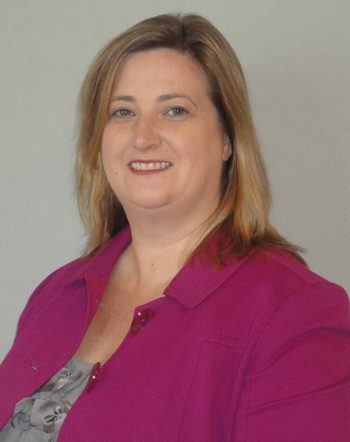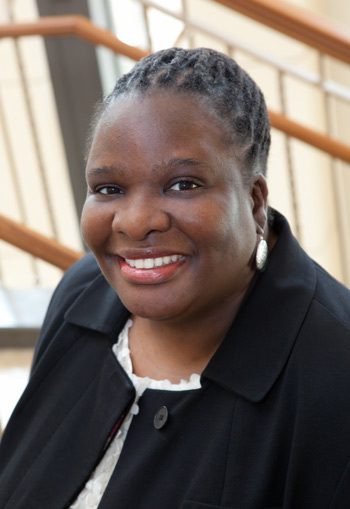Let’s face it: donor advised funds (DAF) are becoming more and more popular as a philanthropic vehicle. Yet many of us don’t really understand what they are or how they work.

Christy Eckoff, Director of Gift Planning, Community Foundation of Greater Atlanta.
In June, we sat down with experts Audrey Jacobs, director of The Center for Family Philanthropy, and Christy Eckoff, Director of Gift Planning at the Community Foundation for Greater Atlanta, to become better versed in how community foundations use this increasingly popular philanthropic tool.
ABOUT DAFs
A donor advised fund is a flexible philanthropic vehicle (of $5,000 or more at the CFGA) enabling donors to contribute money or other assets to the fund. They obtain a charitable tax deduction usually based on the fair market value of the asset contributed. Usually these assets are appreciated property such as publicly-traded stock. “This is advantageous from a tax standpoint,” notes Christy. If the donor sold these stocks and converted them to cash prior to contributing, they would have to pay capital gains tax. Donors at CFGA have the option of retaining existing financial advisors to manage the assets of the fund as part of the mix. The Community Foundation for Greater Atlanta currently manages 650 donor advised funds.
ABOUT THE DONOR

Audrey Jacobs, Director of The Center for Family Philanthropy at the Community Foundation for Greater Atlanta.
At The Community Foundation for Greater Atlanta, each donor is assigned a personal contact—a philanthropic advisor. The philanthropic advisor serves as a philanthropic GPS for the donor, helping him or her to identify his/her passions and then connecting those passions and interests to nonprofit organizations in which they can become involved through giving of their time, talent, and/or treasure. Donors may recommend grants from their donor advised fund to a nonprofit of the donor’s choosing anywhere in the United States and internationally. The nonprofit must be an organization with 501(c)(3) tax exempt designation by the Internal Revenue Service. The majority of grants from donor advised funds housed at the Community Foundation for Greater Atlanta benefit nonprofit organizations in the metropolitan Atlanta region. However, donors may recommend grants to organizations outside Georgia.
ABOUT QUALIFYING NONPROFITS
As mentioned, to receive a grant from a donor advised fund, an organization must, at minimum, operate for a charitable purpose and be in good standing with the IRS. However, the bar is usually set quite high. “Our job as philanthropic advisors is to know high-performing organizations and be able to recommend those organizations to donors. “We have deep knowledge of organizations in the metro Atlanta region.” says Audrey. “Most nonprofits know about our community foundation. Receiving a grant through one of
The Foundation’s competitive grant programs is viewed as a good housekeeping seal of approval that can be leveraged for additional funding from other funders.”
“Nonprofits often want us to connect them directly to donors,” she says, “but instead we share information with donors about nonprofits based on our knowledge of organizations funded through the Foundation’s competitive programs, and based on organizations that share information about their work with us. Once a donor expresses interest in an organization, we will vet the organization and encourage the donor to visit the organization. However, the donor may want to recommend a grant to a nonprofit based upon a relationship s/he already has with that nonprofit.”
ABOUT THE PROCESS
The Foundation obtains information about nonprofits in many ways, when they apply for funding; share information, and through their written material, including annual reports.
“Nonprofits apply for funding through our competitive grants process,” says Audrey. “They submit a Letter of Intent, and some organizations are invited to submit a full application. These organizations are fully vetted and then approved by the Board of Directors. Organizations funded through our competitive grants programs—like our Common Good Funds, AIDS Fund, Arts Fund, Strategic Restructuring Fund—include organizations that we know are strong, and so we recommend them to donors for funding, based on the donors’ interests. There are organizations that may not be eligible for funding through our competitive grants programs, but still have their IRS 501(c)(3), and so they may receive grants from donor advised funds if recommended by a donor. All grants must be ratified by the Foundation’s Board of Directors.”
The Foundation’s competitive grants program awards grants for general operating support. Donors may recommend grants from their donor advised fund for project specific support or general operating support. The Foundation’s Toolbox program provides special grants for capacity building.
Its Extra Wish program provides donors with the ability to fund, through grants of $5,000 or less, specific and tangible projects within nonprofit organizations..
“We make philanthropy easy for donors,” says Audrey. “They can go to a link on our website 24 hours a day and access our donor portal which allows them to recommend grants. We then conduct the necessary due diligence, process the check, and send the grant directly to the nonprofit organization. We help our donors fulfill their philanthropic goals.”
By facilitating donor contributions, the Foundation helps build stronger communities — promoting health and education, the arts, environmental conservation, and a wide range of other critical needs. And that is a concept we can all understand.
Receiving a grant through one of the Foundation’s competitive grant programs is viewed as a good housekeeping seal of approval that can be leveraged for additional funding from other funders.



